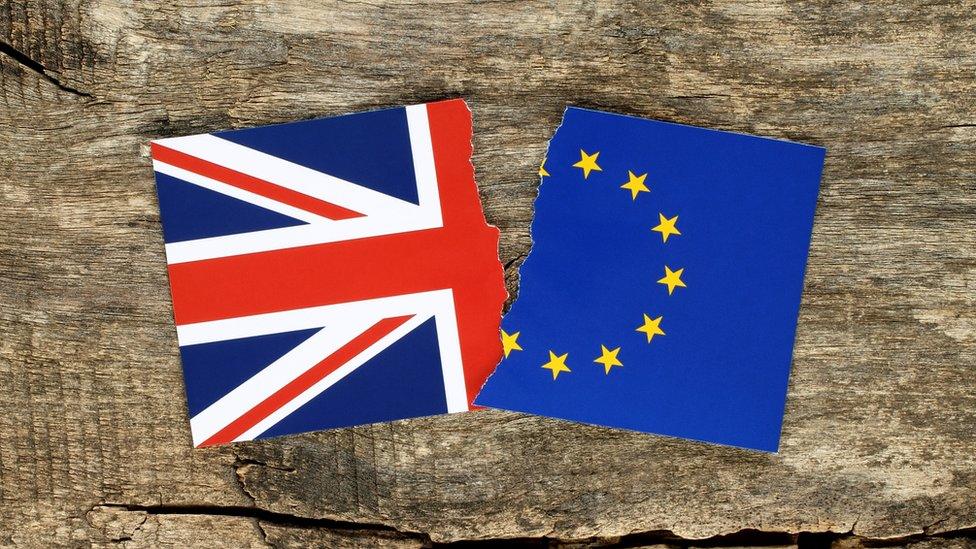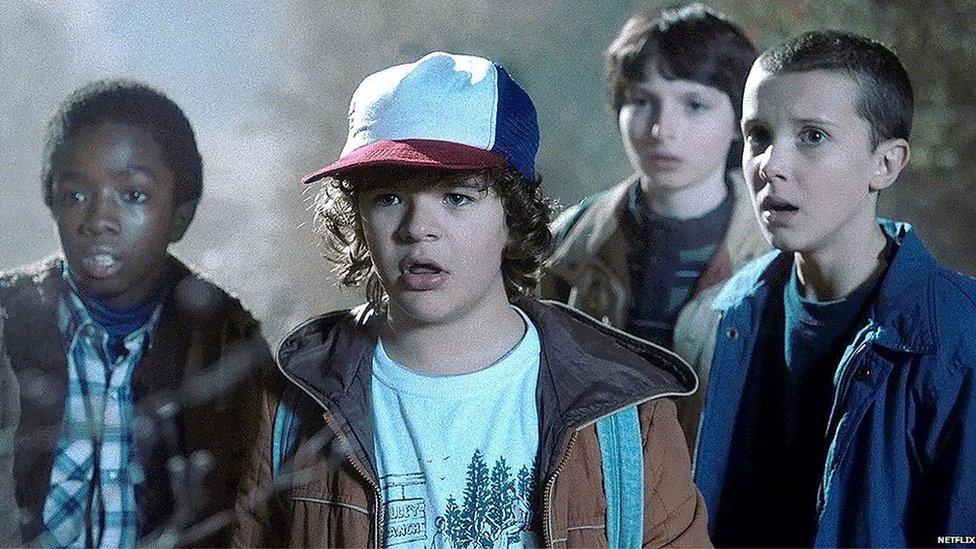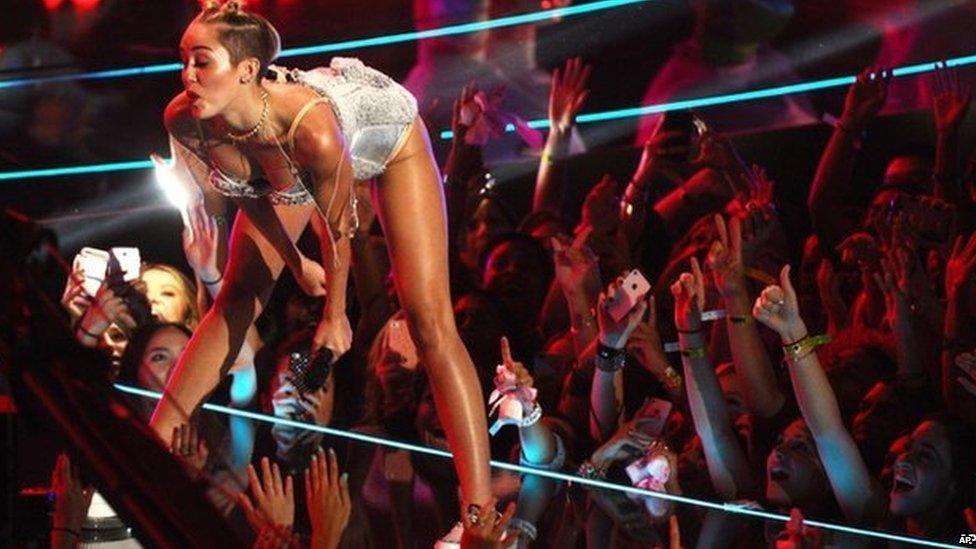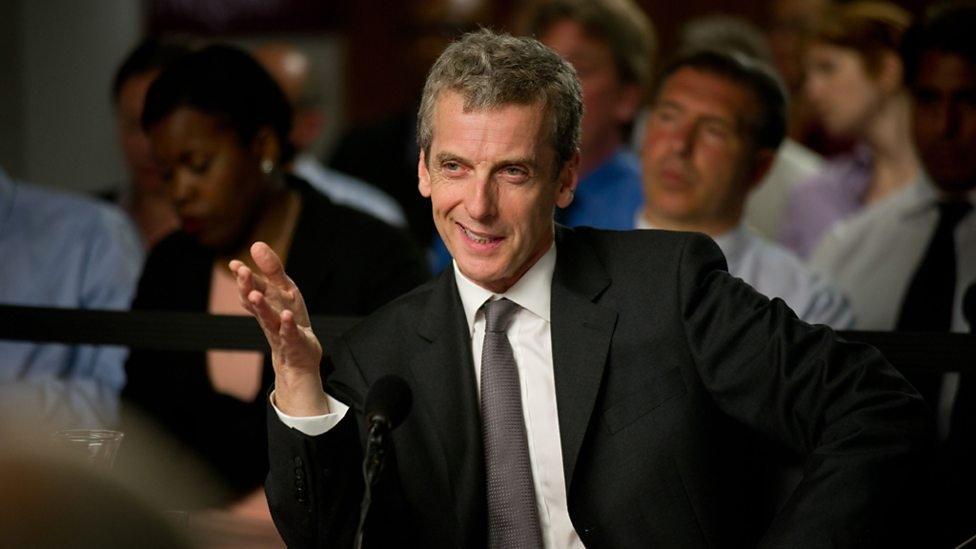Will Brexit last longer than other winning words of the year?
- Published

Brexit has been named word of the year by the Collins dictionary beating Trumpism and hygge.
The word had its first recorded use in 2013 but as the EU referendum approached, more and more people started using it.
It's an increase that Collins says is "unheard of" since it began monitoring word usage.
It's a word that will definitely be sticking around for a while but are we still using previous winning words?
Binge-watch, 2015

We've been binge-watching Stranger Things in 2016
Last year's word of the year reflected our obsession with box sets.
Meaning "to watch a large number of television programmes (especially all the shows from one series) in succession", it reflected a change in viewing habits due to subscription services like Netflix.
There's no sign of it slowing down either with the video streaming company adding 3.2 million international customers in the last three months.
Photobomb, 2014
This dog photbombed the Pope in 2016, external
Back in 2014 photobombing was all the rage - even the Queen got involved.
The Queen photobombed hockey player Jayde's photo., external
It beat off competition from bakeoff and normcore.
The photobomb is officially defined by the Collins English Dictionary as "to intrude into the background of a photograph without the subject's knowledge".
A bit like this butterfly - although the koala clearly knows what's going on.
This tweet shows the footage of a butterfly photobombing a koala., external
Twerking, 2013

Miley Cyrus "twerked" at the MTV Video Music Awards in 2013
Who can forget THAT performance by Miley Cyrus at the MTV Music Video Awards in 2013?
It not only got her some new found fame (not that she needed it) but also pushed twerk into the top spot.
Both Collins and Oxford dictionaries named it word of the year.
The word, borrowed from hip-hop culture, was first used in 1820, spelt twirk, to refer to a twisting or jerking movement or twitch.
Since then, it's sadly been adopted by embarrassing dads at weddings.
Omnishambles, 2012

Malcolm Tucker from The Thick of It
If you're thinking this sounds like an entirely made-up word, you're right. It had never been heard until it was put to brilliant use in the political satire The Thick of It.
You can sort of work out what it means but officially, it's described as a situation that has been "comprehensively mismanaged, and is characterised by a string of blunders and miscalculations".
It went down so well that it was even used in the House of Commons, when the then Labour leader, Ed Miliband, used the word to describe the government's budget.
But it doesn't seem to get many outings these days.
And here's one still going seven years on....
Unfriend, 2009

Don't pretend you've never done it.
It is of course the act of removing someone as a friend on a social networking site.
And it remains an absolutely vital tool when you decide you really, really can't face seeing someone's constant baby/pet/night out photos any more.
The handy thing being in 2016, you can just unfollow or mute someone, in case you're worried about appearing rude.
Find us on Instagram at BBCNewsbeat, external and follow us on Snapchat, search for bbc_newsbeat